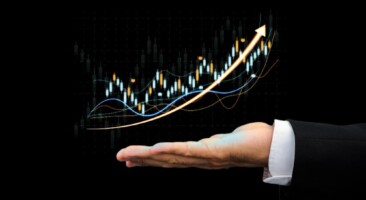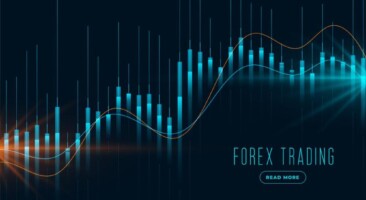Introduction to the Forex Market: Unraveling the Mysteries of Currency Trading
The Forex Market, or foreign exchange market, is a global platform where currencies are traded 24 hours per day, five days a week.
It stands out as the largest and most liquid financial market in the world, moving trillions of dollars daily.
In this article, We will explore the fundamentals of Forex, from its origins to the trading strategies used by experienced investors.
Origins and Evolution of Forex
The Forex market has its roots in the Bretton Woods system, created after World War II to establish a stable international monetary system.
However, the real revolution took place in the years 1970, when countries abandoned fixed exchange rates, allowing currencies to float freely.
Since then, Forex has developed as a decentralized electronic arena, allowing banks to participate, Financial Institution, governments, and individual investors.
Forex Market Participants
Different agents move the Forex market, each playing a vital role in determining exchange rates.
Key players include central banks, commercial banks, hedge funds, brokers and individual traders.
This diversity of participants creates a dynamic and volatile environment, providing profit opportunities for those who understand its mechanisms.
Let’s deepen our understanding of these players:
Central Banks:
Central banks play a crucial role in the Forex market.
They intervene to stabilize their national currencies, adjusting interest rates and directly participating in the market to influence exchange rates.
Your decisions have a significant impact on the value of coins.
Commercial Banks:
Commercial banks are active participants in Forex, both on your own behalf and on behalf of your clients.
They provide liquidity to the market, facilitate transactions and seek profits through currency trading.
Large banks have departments dedicated exclusively to foreign exchange trading.
Brokers and Trading Platforms:
Forex brokers act as intermediaries between traders and the market.
They offer trading platforms, access to liquidity and analytical tools.
Many individual traders use these brokers to execute their trades.
Multinational Companies:
Multinational companies involved in international trade use the Forex market to manage currency risks.
They can buy or sell currencies to protect themselves against unfavorable fluctuations in exchange rates and ensure stability in their business transactions..
Hedge Funds:
Hedge funds seek to profit from price movements in the Forex market.
They generally use more complex strategies, combining technical and fundamental analysis, in addition to derivative financial instruments to maximize your returns.
Institutional Traders:
Institutional traders, as asset managers and investment funds, also play a significant role.
They trade large volumes of currencies, often based on long-term analysis and asset allocation strategies.
Individual Traders:
With the advance of technology, individual traders have direct access to the Forex market.
They actively participate, using online trading platforms.
Forex's popularity among individual traders has grown due to the accessibility and opportunity to trade at any time of the day.
Governments and International Financial Institutions:
Beyond central banks, governments and international financial institutions, like the International Monetary Fund (FMI), can intervene in the Forex market to stabilize global economies, especially in crisis situations.
The interaction of these participants creates a dynamic environment in the Forex market, with different interests, strategies and time horizons, resulting in complex and fluid price movements.
Understanding the dynamics between these players is crucial for traders seeking to make informed decisions in the forex market..
Currency Pairs and Quotes
No Forex, currencies are traded in pairs, where one is bought while the other is sold.
The main ones currency pairs include Euro/US Dollar (EUR/USD), US Dollar/Japanese Yen (USD/JPY) and British Pound/US Dollar (GBP/USD).
Quotes represent the value of one currency in relation to another and are expressed in terms of supply (purchase price) and demand (sale price).
Opening Hours and Market Sessions
A unique feature of Forex is its continuous opening hours.
With four main sessions – London, New York, Tokyo and Sydney – there is always a part of the world active in the market, allowing traders to participate at any time, regardless of your location.
Leverage and Risk Management
Leverage is a powerful tool in Forex, allowing traders to control a position larger than their initial capital.
However, it also increases the risks. Risk management becomes, Like this, crucial.
Strategies such as stop-loss and take-profit orders help investors protect their investments and limit possible losses.
Technical and Fundamental Analysis
Two Predominant Analysis Methods Guide Forex Decisions: technical analysis and fundamental analysis.
Technical analysis uses charts and indicators to predict price movements based on past patterns, while fundamental analysis considers economic factors, political and social issues that can influence exchange rates.
Trader Psychology in the Forex Market: The Decisive Role of Emotions
In the world of the Forex market, trader psychology emerges as a determining factor between success and failure.
Constant fluctuations in exchange rates can trigger intense emotional responses, like anxiety and euphoria, what, if not controlled, can compromise rational decisions.
Maintaining emotional control is essential, requiring discipline to follow pre-established strategies, patience to wait for ideal conditions and the ability to deal with losses objectively.
In addition, risk management intertwines with trader psychology, demanding the ability to set clear limits and implement stop-loss orders.
The quest for continuous learning, self-knowledge to adapt strategies to the individual profile and resistance to external pressure complete the psychological panorama.
Ultimately, Understanding and balancing emotions is as crucial as understanding market movements for those seeking to successfully navigate the dynamic world of Forex..
Challenges and Opportunities
Although Forex offers significant profit opportunities, also presents challenges.
Market volatility and high leverage can result in substantial losses if not managed properly.
Continuing education, practice and discipline are essential to face these challenges.
Conclusion: Navigating the World of Forex Wisely
In brief, The Forex Market is a dynamic and complex environment, providing a variety of opportunities for investors.
Understand the fundamentals, Adopting risk management strategies and choosing appropriate analysis approaches are essential elements for success in Forex.
As you embark on this journey, traders are challenged to cultivate knowledge, skill and discipline, while exploring the vast possibilities that the foreign exchange market has to offer.

More about:
News and Entertainment.











